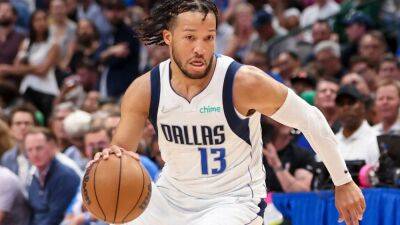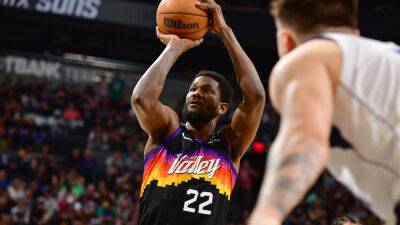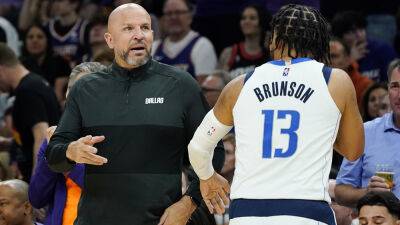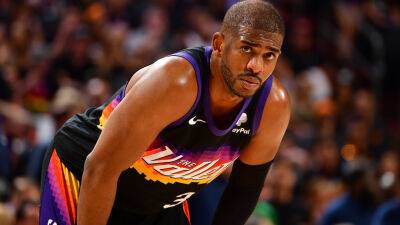NBA Offseason Guide 2022 - How the Phoenix Suns should approach the offseason
The Phoenix Suns' revenge tour proclaimed by Devin Booker has officially been postponed.
The NBA's best team during the regular season is now heading home, eliminated by the Dallas Mavericks in Game 7 of the Western Conference semifinals.
Dreams of a championship now shift to an offseason where the focus is on restricted free-agent center Deandre Ayton.
Roster status: Championship level but set to become expensive
Suns owner Robert Sarver knows keeping this roster intact will come at a cost.
«That's gonna come with the territory here,» Sarver told the «Burns & Gambo» show last July about paying the luxury tax. «I don't know if that's next season [2021-22] or the one after that [2022-23], but we know it's coming. We see ourselves as a taxpayer, and that's just part of what it's gonna take to bring home a championship.»
The Suns did not pay a tax this season because Chris Paul declined his $44.1 million player option and signed a new contract that started at $30.8 million. Paul's financial sacrifice allowed the Suns to sign reserves Cameron Payne and JaVale McGee and eventually trade for Aaron Holiday.
The Sarver comments should still resonate despite the Suns' loss to the Mavericks in the second round. Phoenix is still a championship contender entering next season, but at a significant cost; the Suns currently have $128.8 million in salary, $20.3 million below the tax threshold before restricted free agent Deandre Ayton is addressed.
Factor in a possible max salary for Ayton, and Phoenix will pay the luxury tax for the first time since 2009-10. His contract will certainly factor into how much Phoenix is willing to spend in free agency on its five open roster spots.
The Suns will have the $6.4 million tax midlevel








